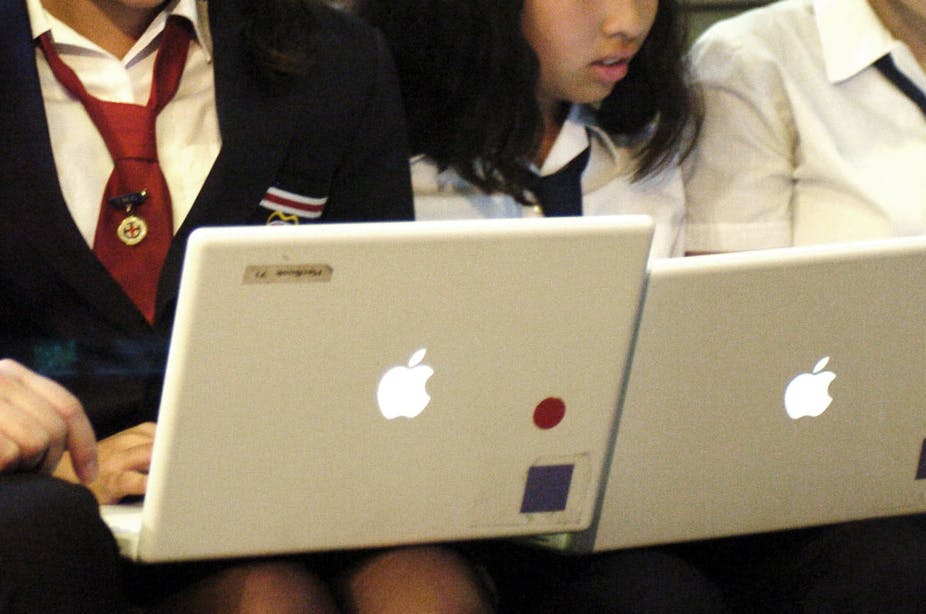Pakistani author Mohsin Hamid’s 2007 novel The Reluctant Fundamentalist has been on the VCE text list for four years in a row. For me, it has been an eye-opener to teach this novel to secondary school students who have grown up post-9/11.

When I took Hamid’s novel into the classroom as part of my university’s Education Partnership Program, I wanted to see whether literature has the power to influence the way we feel or communicate about foreign policy at a time when Australia was preparing for military action against Islamic State. The experience of teaching Hamid’s novel confirmed my belief that literature can bring some nuance to public discourse which, without it, often descends into Us and Them polemics.
The VCE text advisory panel consists of between five and 12 members who are either academics, school teachers or others from the training sector. The guidelines are detailed and precise. It is no surprise that their decisions on recommended texts sometimes provoke criticism and debate.
For example, there was a controversy in late 2012 surrounding alleged obscenity in Nobel Prize-winning author Gabriel Garcia Marquez’s Love in the Time of Cholera (1985). Even though Hamid’s novel has been on the VCE text list for four years now, it has escaped such criticism despite its potentially contentious subject matter.
A post-9/11 novel
The Reluctant Fundamentalist is told from the point of view of a Princeton-educated Pakistani, Changez. It is a dialogue between an Easterner and a Westerner which insists on a Muslim perspective. Even the Westerner’s contribution is told entirely by Changez.
Changez declares himself “a lover of America”. Having said that, he is not particularly put out by the US being brought to its knees through the attack on the Twin Towers. For reasons that remain unclear, he lets his beard grow. Soon, he finds authorities treating him as an Islamic fundamentalist. He eventually leaves his well-paid job at a valuation firm and returns to Pakistan.
In the classroom
We began by looking closely at the opening pages of the novel. I asked the students to consider words or phrases that seemed unusual or foreign to them.
The students quickly picked up on the qualities of Changez’ voice. They remarked on his vocabulary and spoken mannerisms. These seemed unusual compared to more familiar speech patterns from film and other media. Arguably there is a Western narrative voice; at least we know when it’s missing.
The students’ close reading produced fascinating results. They noted that the politeness and kindness of Changez’ voice was “weird” as well as “suspicious”. After looking at what was most evident – clothing, the exotic setting, the tea – we moved on to other aspects of the reading. The mood was noticeable: the heat, the tattered upholstery and other features of the novel’s exotic setting. The students then mentioned the narrator’s hesitation, the fear of causing offence and his wanting to impress as examples of the foreign.
The elephant in the room
I then asked the students to apply some more pressure to this idea of the foreign. I suggested that they try to put into words what is only inferred in these pages.
Suddenly, the discussion became far more outspoken. It was obvious, some said, that the two men, one American and one Muslim Pakistani, were on different sides. One looked like a fundamentalist terrorist, they said, and the other a CIA operative.
In fact, there is very little to suggest anything other than that the novel is about a polite conversation between a Muslim and a non-Muslim. I began to suspect that the novel relies on readers to bring something into the scene to fill out what it does not mention.
So, what could that something be to those growing up in the shadow of the “War on Terror”?
These secondary school students live in a world in which the novel’s presentation of generosity and kindness mixed with deferential caution between strangers is suspicious. The students came to this conclusion via a short humorous detour in which the headmaster pointed out what was possibly suspicious about his own beard. “That’s not the same thing,” I heard someone say.
Hamid’s novel refuses to mention explicitly the all-too-familiar preconceptions of a post-9/11 world. Instead, as some students discovered, the novel draws attention to what we feel but rarely put into words. It’s almost as if there is so much unmentioned within the novel, and so much silence in the community, that something has to give.
I’m wondering if, by not mentioning the war, the novel actually provokes us to think about what we need to be discussing and debating more fully. This is an especially urgent task as Australia considers increased military involvement in the Middle East.
Editor’s note: Sofia will answer questions between 11am and noon AEDT on Wednesday December 10. Ask your questions about teaching The Reluctant Fundamentalist in the comments below.

